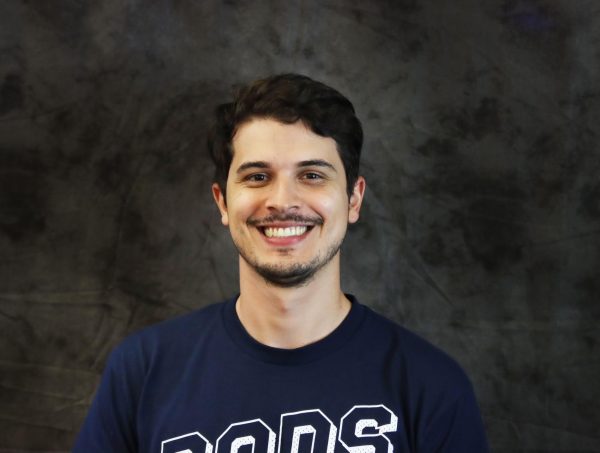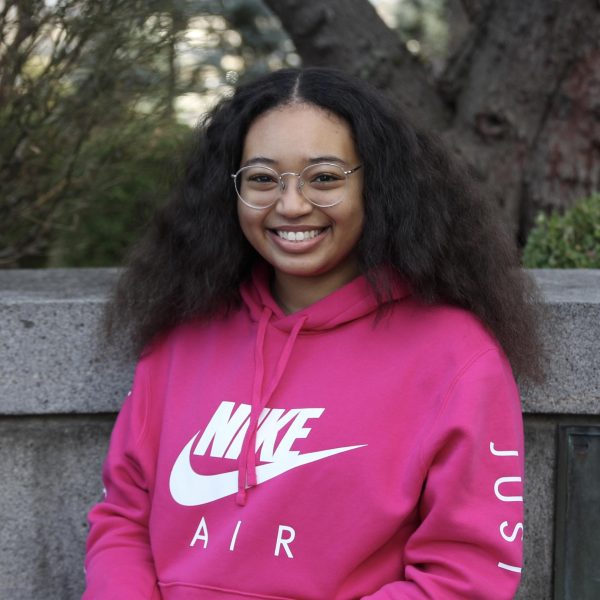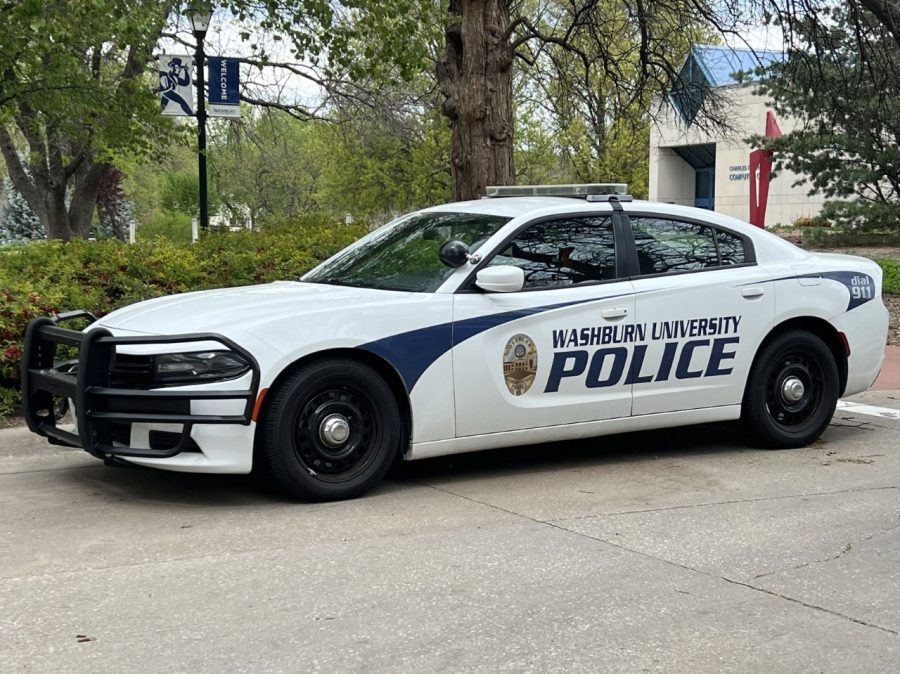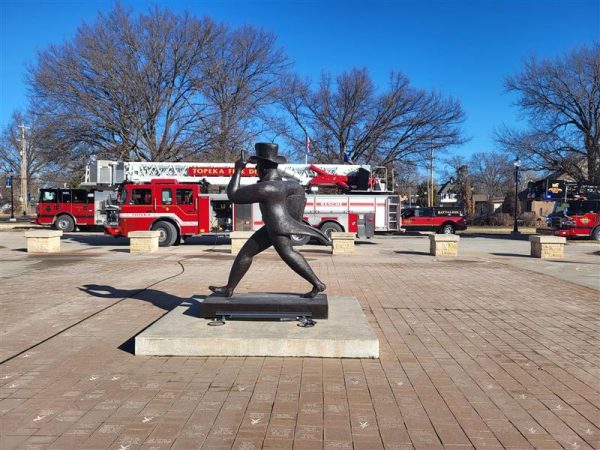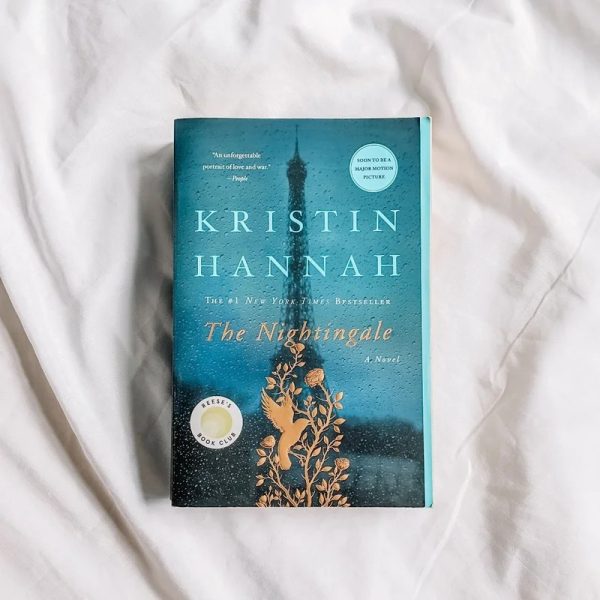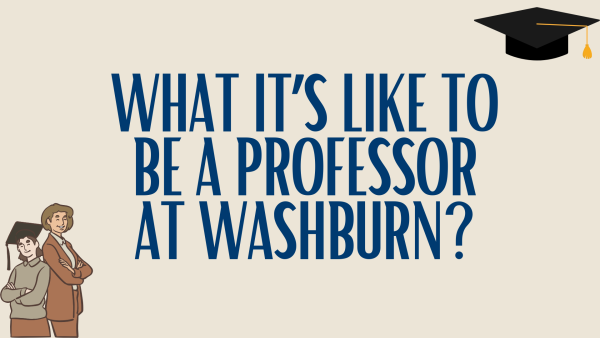WU Police ensures the safety and well-being of Ichabods
The Washburn University Police Department strive to keep a safe environment the Washburn community. WU Police discussed their how they maintain the well-being of everyone on campus.
24/7
Lights come on in the control panel. Three televisions display images from more than 300 cameras in real time. All cameras are named and labeled. The sound in the room consists of electronic beeps, voices on the radio, and email notifications. On the workbench, a diet soda – exactly half gone – is next to the keyboard, next to the upside-down glasses and the cell phone with the screen upward. Sitting in a swivel chair in the middle of all that equipment is Jessica Foxhoven, communications specialist of the Washburn University Police Department. With a smile on her face, she is ready to receive either a phone call or a knock at the door.
Foxhoven, 34, began working at the WUPD in 2011, first as a part-timer. In 2017 she graduated with a bachelor’s in criminal justice from Washburn University.
While she listens to the radio someone talks and she stops the interview recording, to maintain the privacy of the calls…
The WUPD’s mission is to ensure the safety for the learning environment for students, faculty, staff and visitors. To do this, two key things must happen and are taken seriously in the office: receive and respond to calls.
Receiving the call
From the emergency poles spread around campus to the emergency buttons on the WU elevators, all calls are directed to the communications specialist. Foxhoven is the first person to ensure an open channel of safety and care on campus.
“I operate in a secure area and operate mostly on the phone, so one of the biggest challenges but one thing I can bring to the table is: I do what I can for people to the point that they are going to remember me. If they remember me, probably I have done enough to help them whatever situation they called about,” Foxhoven said.
Her work requires a lot of attention and technique and functions as a kind of gatekeeper.
Someone speaks on the radio and now she speaks what time it is – in military format – on the microphone that is on the right side of the bottle of diet soda…
She said that the buildings monitors, student employees of the department, are closing the rooms, so she needs to log into the system the moment the task is done.
There is a lot of information going in and out of that room. Amidst the codes and abbreviations typical of police language, when someone calls asking for some assistance, she makes sure to do the best possible.
“I make it my mission to be the best for them and beyond. I really care and I like to be remembered for that,” Foxhoven said.
Once a person called her in frustration because the classroom she was using for an event was all messed up. Although clear up is that is assigned to her, Foxhoven made a few calls so that the right people could help the caller. A week later she received a thank you card in her office that made her day.
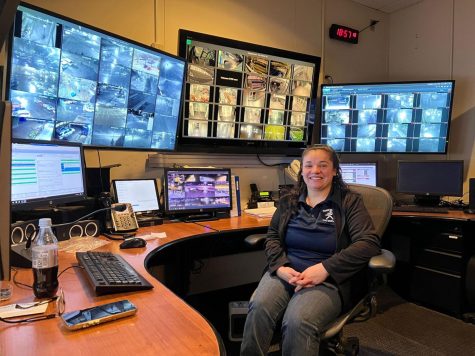
Ready to respond to your call
As vital as receiving the call is responding to them.
Seated in his office chair, Police Officer Stuart Green is fully geared up with the radio headset in his left ear and ready for campus duty. Green, 41, says that since coming to the department about three and a half years ago, he has loved connecting with everyone at WU.
“I like to go into the buildings, talk to staff, faculty and students. Being known, making contacts and letting them know who we are,” Green said.
There are some resources that police officers can give that many do not know about. According to Green, helping unlock cars is one of the things that often happens.
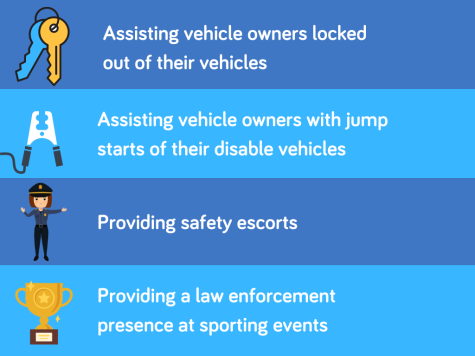
Green recalls a graduation event on a warm May day when he was patrolling the surrounding area of the university and suddenly came across a totally naked man! Even though there is no state law that says this is a crime, the officer went to check what the reason for this and discovered that the man was completely dehydrated. After offering Gatorades and water, the man did not accept any more help and left. The situation would have ended there if someone had not filmed and posted on social networks a “policeman helping a uncovered man,” he recalls laughing at the situation.
Help even in delicate situations
The officers of the WUPD constantly go through training so that they can deal with many different scenarios. Green says that the most challenging situations he has faced have been responding to calls from students in crisis and even thinking about suicide. He was able to talk to and provide proper assistance to these people.
“I love people and talking to people and helping people. I love being a resource for either someone who is having a good day or maybe a bad day, to have a good day,” Green said.
Changing perspectives
Green said the international students have opened his eyes because many bring negative perspectives of the police from their countries. Some Americans also have a negative impression of police. Once, talking with a person from Atlanta, Georgia, about school and studies, the person said that this was the “first good interaction with the police in his life.” Green was happy and sad because he realized the police’s duty is to protect and help; something that does not always happen everywhere. So, every time he talks to someone, he sees it as an opportunity to change that person’s perspective for the better.
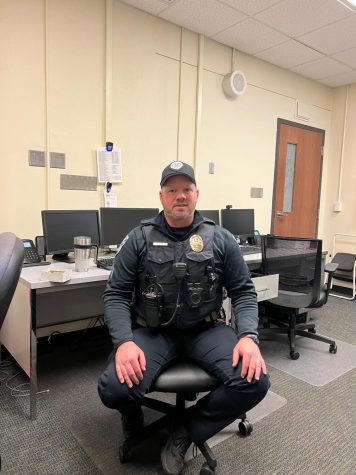
Geared up to help
In addition to the more than 300 cameras, phones and fire alarms, the WUPD has seven vehicles in its fleet that patrol the campus and its surroundings. Inside the 2019 Ford Explorer Police Interceptor, Sergeant Drew Liggett goes through all the parking lots on WU on his routine patrol. He checks if cars are parked correctly, if anyone needs help, and if everyone is keeping to the speed limits. He always keeps an ear to the radio for an emergency.
While on patrol, Liggett, 33, said that working on campus fulfills him. Being able to serve a community and provide almost personal support.
“In the city of Topeka there are about 500 police officers to take care of over 127,000 people throughout the city, whereas here we have the opportunity to provide a more localized service,” Liggett said.
“I probably must have received and continue to receive more training than most city police officers,” Liggett said without in any way belittling his fellow Law Enforcement Officers. That it is one of the reasons he feels good and prepared to work for the Washburn community.
After 50 minutes of patrol, the sergeant returns to the department, enters the communications room, and starts talking to Jessica Foxhoven before returning to his next routine assignments to keep the campus security.
Your donation will support the student journalists of Washburn University. Your contribution will allow us to purchase equipment and cover our annual website hosting costs.
